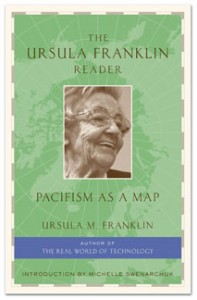- Institute ESJP awards for students (undergrad, grad) and faculty
- Share ESJP activities, findings, etc at more mainstream conferences
- develop communities of practice in different countries to promote local dialogue and praxis
- scrupling (wine & cheese) with local engineers, town hall meetings
- encourage more students to participate in ESJP conferences
- global north trained by the global south
- common projects
- community and engineers meetings
- porting existing SJ curricular integration to other universities via students and faculty and make part of engineering design criteria
- teach SJ via case studies
- surveillance technology
- complex situations need complex, but still values-based responses
- more opportunities for faculty to participate in student activities; reward this behaviour – faculty member as mentor, help recognize academic dimension
- networking forum – support network
- invite experienced practitioners into the classroom [can be titled “visiting professors”]
- train ESJP ambassadors: for going into companies, for public outreach, for embedding in engineering labs/courses, etc.
- mining
- working for/against corporate management
- integrate SJ into engineering courses (when relevant to course objectives)
- producing and sharing knowledge (eg books, workshops, key note speakers events)
- train/educate faculty on how to integrate SHJ into their courses
- local professional engineering society to have a voice on social justice issues
- pro-bono engineering practice – ID existing programs, working with professional societies
- what is ‘informed citizenry from global prospectus?
- a global exercise: who benefits, who pays? in many classes, post answers on web
- ASEE activism – provocative posters on SJ themes
- Do we assume our students are unable to arrive at “the right” position?
- Are we making SJ the only/primary focus of engineering?
- Trust the students…
Tag Archives: praxis
More on Donna and Katy’s workshop
Donna Riley and Katy Haralampides, drawing on Ursula Franklin’s ideas of scrupling encouraged, us to think of our own experiences of situations when we ourselves have been acting for (promoting) social justice and then in small group share and try to come up with examples/ways of how we can use/transfer/draw on these strategies/experiences in our ESJP work.
Juan’s group drawing on Lizzie’s experience from EWB Oz suggested that maybe trying to formulate/frame ESJP issues through formulas and models might be a way to get acceptance from other engineering faculty etc. However, if this was done then the essential human relationships fundamental for these issues would be lost, so it would be a bit pointless.
Lastly, we, in small groups, brainstormed about actions that the ESJP network can take collectively. Some suggestions were:
• Bring community members from different parts of the world together.
• Training courses in the south.
• Encourage student participation in the ESJP network.
• To share outcomes of this ESJP meeting in relevant contexts in our home countries.
• Institute ESJP awards…
• Initiate scrupling events in our own local (engineering) communities for example during wine and cheese.
• A global exercise done simultaneously in different classes and contexts.
• What does informed citizenry look like and how can engineering contribute?
• Activism at main conferences – provocative posters on SJ themes.
• ESJP ambassadors – students? – to go into classes etc.
• Pro-bono engineering, with out profit societies.
• Rip down unethical job postings?
• Database of ESJP case studies.
• Pointing to existing ESJP curricula around the globe for the benefit for educators and students at other institutions.
Session 4 (Wednesday)
I’m looking forward to Donna and Katy’s workshop. They’ve started out with talking about Ursula Franklin and scrupling (More here).

